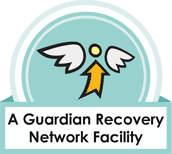In a perfect world people who seek addiction treatment would give up all their bad habits. Recovery is about changing everything and removing any harmful attributes of one’s life. It’s essential to discontinue engaging in behaviors that could impact one’s recovery. Smoking cessation is in everyone’s best interest.
People go to treatment to break the cycle of addiction and learn how to live a productive life in recovery. Despite the fact that cigarettes are addictive and lead to premature death, many clients persist in smoking during and after treatment. They rationalize their continued use of the deadly product because cigarettes never brought them to the depths of despair. They never sold their car to pay for a pack of cigarettes. What’s the harm of holding on to one guilty pleasure in recovery? There is more harm than they would imagine!
A major component of addiction recovery is relapse prevention, a form of risk management (in a sense). That is, avoiding people, places, and things that could jeopardize a program of recovery. Anything that can trigger somebody’s addiction and lead to urges can precipitate a relapse. One must stay clear of that which can compromise the mission to lead a healthier life.
Even though everyone knows cigarettes are harmful to one’s health, people in recovery continue the behavior. It’s likely that such people are unaware that cigarettes can increase their risk of relapse, exponentially.
Quitting Cigarettes for Recovery
These days, people who seek help from an addiction treatment center are almost always encouraged to quit smoking. There was a time when treatment providers didn’t place as much emphasis on smoking cessation; they found it more prudent to have clients direct their energy on the more pernicious forms of addiction. On the other hand, some facilities didn’t allow smoking altogether — stressing total abstinence from all mind-altering substances.
Today, most treatment centers encourage quitting cigarettes but leave the ultimate decision to the client. While under their care, clients have access to many smoking cessation tools, i.e., patches, gums, and medication to aid them in their efforts. The rise of e-cigarettes has put another option on the table, and a significant number of people in recovery have made the switch. Unfortunately, research into the effectiveness of e-cigs for smoking cessation is lacking, and the FDA has yet to approve the devices for that purpose. What little research there is, however, is promising to say the least.
Health experts tend to agree that e-cigarettes are far safer than their traditional counterparts. Research published recently indicates that 6.6 million cigarette smokers will live substantially longer by switching to e-cigarettes. The British Psychological Society released a report, as well, supporting the use of electronic cigarettes for smoking cessation. Dr. Lynne Dawkins, Associate Professor at London South Bank University and the report’s co-author, said:
“For smokers trying to quit, e-cigarettes are more attractive than traditional smoking cessation methods, such as nicotine replacement therapy, and at least as effective. There is also mounting evidence that they are much safer than tobacco smoking. As a consumer product, although most Stop Smoking Services are not currently able to supply these, we recommend that they endorse them and support their use by smokers trying to quit.”
Smoking Cessation In Treatment
If protecting your recovery and preventing premature death is essential to you, then you would be wise to reconsider smoking cessation. You can even use some of the tools already at your disposal to aid your efforts. The Steps and the principles of recovery are helpful when utilized. You will likely find that quitting cold turkey is not an option, something you will want to discuss with your primary care physician. Being free and clear of nicotine use may take some time, but it will be worth it in the long run.
At Guardian IOP, we strongly encourage our clients to quit smoking. While under our care, you will have access to several smoking cessation options. When learning how to live a life in recovery, anything that can be done to promote health is instrumental to the entire process.

Reviewed for accuracy by:
Anna Marie Barrett LCSW, CYT
Anna earned her Masters of Social Work at Barry University in Miami, FL in 2017 and completed her internship in co-occurring disorders. Anna has a Bachelors of Art in Religious Studies from Naropa University and is a certified yoga and meditation instructor. Anna has received specialized training in somatic counseling with an emphasis on body-centered psychotherapy.




















